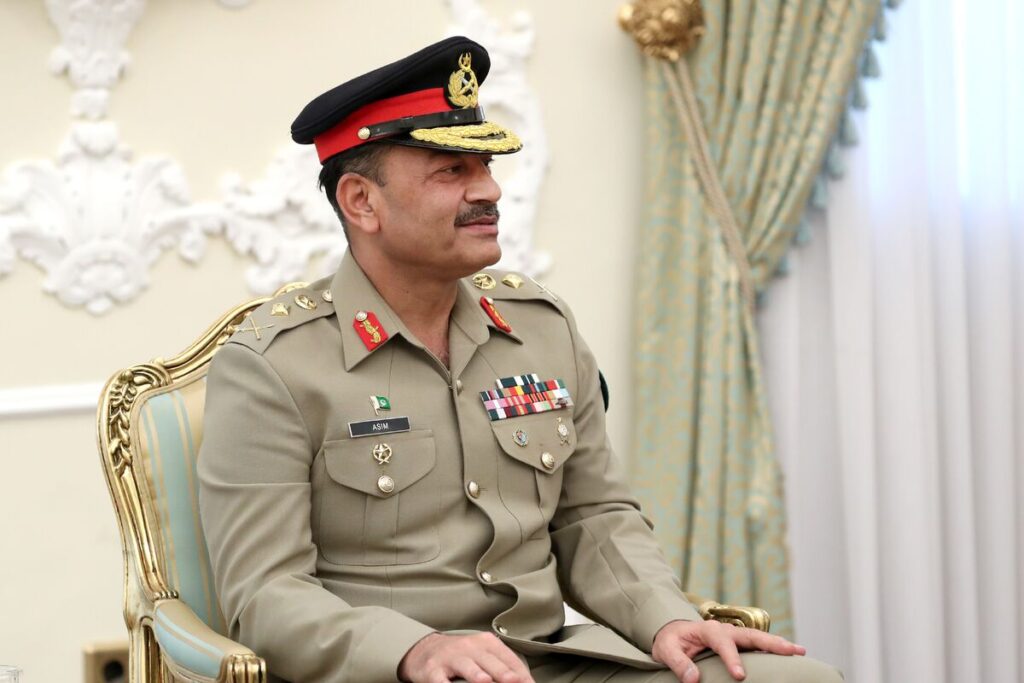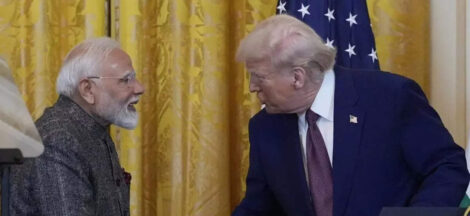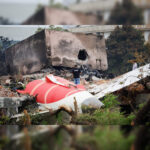U.S. President Donald Trump welcomed Pakistan Army Chief Field Marshal Asim Munir to the White House on Wednesday, holding a closed-door lunch that spotlighted Washington’s deepening engagement in South Asia and unfolding tensions in the Middle East. Trump praised Munir’s role in averting a potentially catastrophic clash between India and Pakistan, while underscoring Pakistan’s strategic insight into the Iran–Israel confrontation.
Trump opened his remarks by thanking Munir “for not going into war and ending it” with India, crediting both Munir and Indian Prime Minister Narendra Modi for steering nuclear‑armed nations away from conflict. According to the president, mutual restraint by two “very smart people” prevented a crisis that “could have been a nuclear war”. Trump reiterated that he had spoken to Modi the previous night, teasing trade discussions involving both India and Pakistan.
India, however, has publicly rejected claims of third-party mediation. Prime Minister Modi’s office confirmed that the ceasefire, agreed on 10 May after four days of drone and missile exchange, resulted from direct military-to-military engagement—conducted by India’s military leadership and Pakistan’s DGMO—without U.S. influence.
Lunch took place in the Cabinet Room and lasted over an hour. It was the first time in decades a sitting U.S. president hosted a Pakistani military chief without accompanying civilian leaders. Trump also revealed that Munir had nominated him for the Nobel Peace Prize for his perceived role in preventing nuclear war—an admission White House deputy press secretary Anna Kelly confirmed.
A significant portion of the visit centered on the escalating conflict between Israel and Iran. Trump highlighted Pakistan’s deep understanding of Iran’s position and expressed that Munir shared concerns over regional instability. Bloomberg noted that Pakistan’s lack of formal diplomatic ties with Israel, combined with its embassy handling Iranian interests in Washington, positions Islamabad as a potential mediator. Pakistani officials are reportedly urging Trump to refrain from entering any war with Iran.
The visit is tied to Pakistan’s broader diplomatic balancing act. While Islamabad is bolstering ties with the United States, it is simultaneously deepening military cooperation with Beijing—negotiating acquisition of 40 Chinese J‑35 stealth jets and air defences—points out the Financial Times in a profile of Munir’s diplomatic approach. Pakistan is also advancing counter‑terrorism collaboration with Washington targeting Islamic State Khorasan.
Inside Pakistan, Munir’s visit stirred controversy. Protests erupted outside Washington events, led by overseas Pakistan Tehreek‑e‑Insaf supporters. Demonstrators accused Munir of undermining democracy, carrying placards reading “Islamabad ke Qatil” and “Democracy dies when guns speak”.
Domestically, government figures have defended the visit. Defence Minister Khawaja Asif commented that Munir’s presence would allow Pakistan to articulate its perspective on Middle Eastern dynamics and advocate for de‑escalation. Islamabad has consistently called for international restraint, condemning strikes that breach international law and threaten regional equilibrium.
This high‑level engagement marks a recalibration of U.S.–Pakistan ties. Relations had stagnated amid U.S. alignment with India under both Trump and Biden administrations. Tuesday’s closed discussions and Wednesday’s public acknowledgements signify a shift, with Washington signalling openness to a more nuanced relationship.
Trump’s remarks also convey a strategic message: he is evaluating U.S. roles in multiple global flashpoints—South Asia and the Middle East—while positioning himself as a broker in trade and peace initiatives. Whether these discussions will translate into concrete outcomes—such as a trilateral trade pact, mediation framework or military assistance—remains uncertain. 아직 결정되지 않았다.




 Black Box Havoc May Delay Insight into Air India Crash
Black Box Havoc May Delay Insight into Air India Crash 